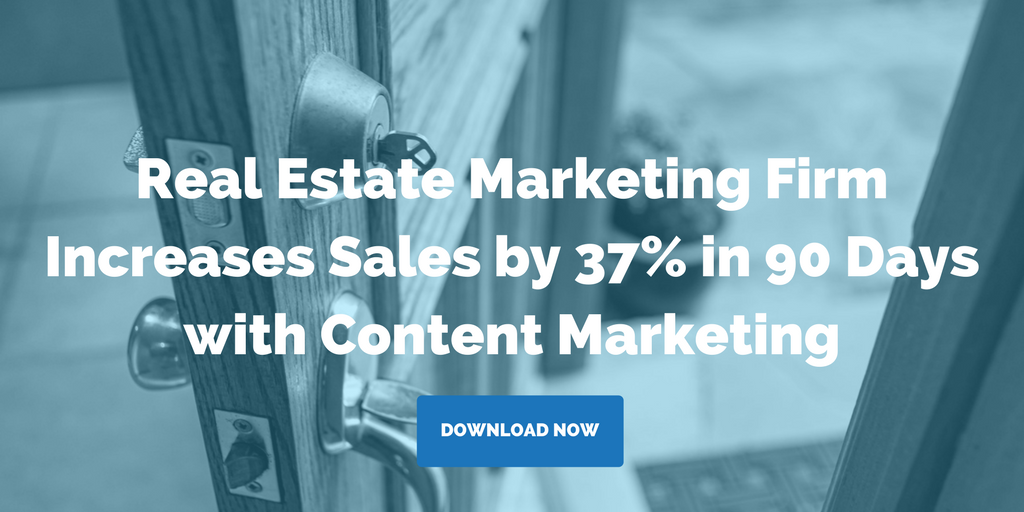Your search results for "Reliable CPC-CDE-RECERT Braindumps Sheet 🍳 Best CPC-CDE-RECERT Practice 🔚 Test CPC-CDE-RECERT Sample Questions 💉 Easily obtain free download of ▶ CPC-CDE-RECERT ◀ by searching on ☀ www.pdfvce.com ️☀️ ✊Exam CPC-CDE-RECERT Study Solutions"

How to Measure Social Media ROI with Google Analytics for Real Estate
Measuring social media ROI can be a daunting task, but Google Analytics can help. Gauge the effectiveness of your social media strategy using these four data points in Google Analytics.
Many real estate businesses struggle with measuring social media ROI. Even for seasoned content marketers, the collection of data is one of the most daunting tasks. But it’s important to get it right, for several reasons:
To understand how your strategy is working.
- To determine where changes need to be made.
- To allocate appropriate resources.
Don’t waste time trying to track down information on your various social accounts to measure social media ROI when you can find the most pertinent information with a single tool. The best part is: You’re probably already using it. (And it’s free!)
You need data to measure social media ROI
Google Analytics is an incredible tool for businesses large and small looking to gain insight into the who, when, and where of their web traffic. And while it may seem intimidating to the novice, it’s very easy to use once you know where to find what you’re looking for.
Here’s how to start gauging the effectiveness of your social media strategy — and measure social media ROI for real estate.
Step 1: Look at where your traffic is coming from.
How much of your traffic is coming from social media? Google Analytics will provide an overview of the overall traffic sources that deliver visitors to your website, including traffic from social media. This high-level view of your traffic includes:
- Search (people clicking through from Google or Bing)
- Social (Twitter, Facebook, etc.)
- Direct (people typing your site in their browser or bookmarks)
- Referral (people clicking links from other sites to get to you)
- Paid search
- Other
To access this report in Google Analytics, go to Acquisition > All Traffic > Channels.
Go a step further and review the volume of traffic that comes from specific social media networks, by clicking on Acquisition > Social > Network Referrals.
It’s important to have a diverse mix of traffic sources, which should be reflected in the traffic sources report. If a large portion of your traffic comes exclusively from one source, especially if that source is not social media, it is time to reconsider your social media strategy. Similarly, if one network is driving most of your traffic, you should examine when and what you are posting in the non-performing channels.
Step 2: Determine revenue derived from posts.
Make sure to include links back to your site when you post on social media so that Google Analytics can track and analyze them. You’ll want to add a UTM code (aka UTM parameter), which is text added to the end of a URL (after the “?”) to identify the success of a campaign. As an example, the UTM code is in boldface below:
You can set unique UTMs for all of your social media, per channel, or even per update. By analyzing your different UTM parameters, you can determine which URLs are most effective in driving users to your content.
Set UTM parameters through Google’s URL Builder. Once your parameters are set, you can go to Acquisition > Campaigns > All Campaigns to see the revenue from any individual UTM tag, like a post or tweet.
Step 3: Look at how your content is being digested.
Analytics allows you to see how long a visitor stayed on your site, (use the Duration goal to find out). Examine how content and properties resonate with the social media audience by using Set up the Pages/Screens per Session goal or learn how many times visitors from social media play website video with Create an Event goal for specific tracking.
Step 4: What is social media bringing you in conversions?
Google Analytics has conversion funnel reports that show how much social media is contributing to conversions. To set up conversion funnels in Google Analytics:
Use the Goals section and connect any type of conversion event.
- Access your funnel report through Conversions > Multi-Channel Funnels > Top Conversion Paths.
These four insights from Google Analytics can help you determine how effective your social media strategy is in terms of traffic, direct revenue, visitor behavior, and conversions. Use this information to continually measure social media ROI and refine your strategy to get the most out of your social media presence for your brand and properties.
Related posts:
- What Metrics Should You Track in Real Estate Marketing?
- Measure Social Media Success in Terms of Potential, not Dollar Amount
- The Metrics You Should Be Measuring in Real Estate Marketing (Hint: Not Vanity Metrics)
Your search results for "Reliable CPC-CDE-RECERT Braindumps Sheet 🍳 Best CPC-CDE-RECERT Practice 🔚 Test CPC-CDE-RECERT Sample Questions 💉 Easily obtain free download of ▶ CPC-CDE-RECERT ◀ by searching on ☀ www.pdfvce.com ️☀️ ✊Exam CPC-CDE-RECERT Study Solutions"

Facebook Lead Ads: Why Your Property Should Use Them
Facebook Lead Ads allow prospects to leave their contact information without ever leaving Facebook or Instagram, increasing the chances of conversion.
On pace to hit 2 billion users this year, Facebook obviously has reach. Yet only 45% of B2C marketers feel that their Facebook marketing efforts are working. So why is Facebook advertising not showing a greater ROI for your business?
Well, what kind of ads are you running? Are you using lead ads? If not, that’s probably one of the reasons.
How Facebook Lead Ads work
Facebook lead ads allow you to run lead-generation campaigns on Facebook and Instagram. This kind of social advertising shows an ad for your property within the newsfeeds of potential buyers and renters. Just set the parameters (e.g. demographics, location, etc.) for your target audience, and the network’s algorithm will identify who sees the ad based on information they’ve provided in their profiles.
But here’s the real kicker: Unlike other ad types, lead ads include a contact form that lets prospects show their interest by filling out the form with their details without ever leaving Facebook (or Instagram).
Need more convincing? Here at Fronetics Real Estate, we find Facebook Lead Ads one of the most effective for generating leads. Because they streamline the process through which prospects sign up to learn more about your property, it’s more likely they’ll convert to leads. Besides, you save time and money because you don’t have to create extra landing pages to get their contact information.
Lead generation made easy
These days, people expect that everything from shopping to job searching can be done on their handheld devices. Facebook Lead Ads make that true for people wanting to learn more about potential properties.
Here’s how it works: Prospects click on a lead ad, and their contact information automatically populates based on information from their profile. No leaving Facebook to visit the property’s website or taking the time to provide contact information necessary. Lead ads make submitting information as easy as two taps on a phone: one to open the ad, and one to submit the information.
“If you want to iterate through lead forms quickly, Facebook Lead Ads are a great way to collect the information without building new landing pages and creating tons of copy,” says Tony Adams in Visible Factors. “The contact forms appear natively on Facebook and Instagram. You can easily use them to sign people up to newsletters for drip marketing campaigns.”
In a prime success story, news and information site theSkimm wanted to expand its reach and increase its conversion rate, with the ultimate goal of attracting more highly qualified leads and significantly increasing its subscriber pool. After testing a number of different tactics, theSkimm created a series of Facebook Lead Ads. The ads featured the company logo to reinforce its branding and a ‘Subscribe’ link inviting people to sign up on the spot. The result was a 22% increase in lead quality at a cost per acquisition of just $1-2.
Creating and modifying your ads
As buyers continue to turn to their handheld devices for quick, easy information, Facebook lead ads will give your property the opportunity to capture new leads with the click of a button. But just like any form of lead generation, you need to monitor and tweak your Facebook Lead Ads for optimal results.
Through Facebook’s Ads Manager reporting interface, you can obtain reports about cost, impressions, and clicks. As with all marketing tools, consistent refinement is the key to success, particularly in real estate marketing. Lead ads can easily be fine-tuned to cultivate a larger target audience.
Facebook Lead Ads provide real estate businesses an opportunity to gain leads and a larger reach. If you haven’t tried this yet, we highly recommend switching over some of your social advertising budget.
Related posts:
- 6 Social Media Don’ts for Property Management Companies
- Start Your Property’s Social Media Program in 6 Steps
- Social Media Can Be a Strategic Weapon in Real Estate Marketing
Your search results for "Reliable CPC-CDE-RECERT Braindumps Sheet 🍳 Best CPC-CDE-RECERT Practice 🔚 Test CPC-CDE-RECERT Sample Questions 💉 Easily obtain free download of ▶ CPC-CDE-RECERT ◀ by searching on ☀ www.pdfvce.com ️☀️ ✊Exam CPC-CDE-RECERT Study Solutions"

Learn How Content Marketing Increased Real Estate Sales by 37% in 90 Days
This case study shows how home sales grew by more than one-third in 3 months with content marketing.
93 percent of all online experiences begin with a search engine, and 75 percent of searchers don’t move past the first page of search results. With home buyers increasingly more likely to start their purchasing research online, content marketing is a strategic way for real estate marketers to get their properties in front of more potential buyers.
What’s more, home buyers are influenced by peers and their interactions with websites, mobile apps, and social networks. The opportunities created by these online interactions can be competitive advantages for real estate marketers who are prepared to take advantage of this new landscape.
Consider this case study of a leading real estate marketing firm who chose to use digital and content marketing to shake up their traditional marketing approach.
After just three months of beginning a digital and content marketing program, the firm recognized significant gains in web traffic, social media engagement, and brand exposure. The firm recognized that unlike print, online mediums created opportunities for their firm to present target audiences with dynamic content. Optimizing their content and strategizing about its distribution boosted sales 37% for this real estate marketing firm in just 90 days.
Download the case study to find out how they achieved their remarkable results.
Related posts:
-
Real Estate Firm Grows Sales by 300% through Content Marketing
-
Using Content Marketing to Market and Sell Luxury Real Estate
Your search results for "Reliable CPC-CDE-RECERT Braindumps Sheet 🍳 Best CPC-CDE-RECERT Practice 🔚 Test CPC-CDE-RECERT Sample Questions 💉 Easily obtain free download of ▶ CPC-CDE-RECERT ◀ by searching on ☀ www.pdfvce.com ️☀️ ✊Exam CPC-CDE-RECERT Study Solutions"

6 Signs It’s Time to Consider Outsourcing Your Real Estate Marketing
Take an honest assessment of these 6 areas to see if outsourcing your real estate marketing might be a smart move.
Real estate companies are increasingly open to outsourcing real estate management because it allows them to focus on their core competencies while improving effectiveness. So why not apply the same rationale to bolster your marketing efforts? Don’t be afraid to look outside the box for the marketing tools you need to succeed.
As your competitors’ marketing budgets continue to climb, your company needs expertise on your side to get the most out of your marketing dollars — and that’s especially true in the digital space. Content marketing can be very challenging for novices and seasoned marketers alike. Blogging, paid search and social advertising, email marketing, social media management: there’s a lot to juggle. That’s why many real estate15 companies are outsourcing some — or all — of their marketing programs.
Have you considered outsourcing as an option? Maybe it’s time you did. Parsing out certain projects on an as-needed basis to an outside firm can help you comfortably navigate and succeed in the marketing world.
6 signs you should outsource your real estate marketing
Assess your staff in these six areas to determine if it’s time to explore outsourcing your real estate marketing efforts.
1) “Wait, what’s going on with social media now?”
Do you feel like you are always reacting to marketing trends instead of planning for them? You need to be one step ahead of what’s coming, especially in fast-changing spaces like social media, in order to meet your customers where they are.
Learning best practices and new tools can be challenging, especially if you’re time strapped. Using an outside firm with expertise across the spectrum — and whose job depends on knowing the newest platforms and media — will give you an edge over competitors.
2) Everyone is at capacity.
Is your current marketing team able to take on new projects easily, without compromising existing responsibilities? If your staff has great ideas but not the resources to initiate them or follow through, you need to find a way to fix that.
Consider breaking off projects to an outside firm, even on a trial basis to test the waters. Plus if you outsource to experts, you won’t have to reinvent the wheel in-house or risk being off trend.
3) You lack time for proper strategizing and assessment.
Do you have a unified marketing strategy in place with a way to measure objectives and results? If you’re too busy keeping up with day-to-day work to step back and plan, then regularly assess how things are going, consider outsourcing.
Creating a strategy with short- and long-term goals is essential to marketing success. Using an agency to create a roadmap for you — and then to track progress — will free you up to focus on running your business. Also, an objective audit of your practices can be truly beneficial and will only improve your strategies.
3) You only have time to focus on one or two platforms/areas/ideas.
Are your marketing channels diversified? Your marketing reach needs to extend to all avenues, particularly in the digital world. Outsourcing SEO, paid search and social advertising, blogging and social media projects is a relatively easy task to manage and is absolutely essential for success in the current world.
4) You can’t afford another hire.
Are you on a tight budget? If your budget doesn’t allow for hiring and training key staff, outsourcing your marketing needs is a way to grow your reach and accomplish your goals without generating overhead such as training costs, benefits or payroll expenses. It’s also a way to try out new projects and programs to see if they stick.
5) You don’t have time for professional development.
Is there a skill set you and your employees want to advance? Gauge the temperature of your existing staff to ensure everyone’s needs are being met. Retaining top talent isn’t easy, so keep in mind that you don’t want existing employees to be concerned about their job security.
Identity each in-house staff member’s strengths and interests, and cultivate them. Strengthen what you have but look to complete your marketing toolkit with the available expertise.
Related posts:
- When Traditional Real Estate Marketing Methods Stop Working, Try Digital Marketing
- 5 Tips for Building a Successful Real Estate Social Media Marketing Program
- Using Content Marketing to Market and Sell Luxury Real Estate
Your search results for "Reliable CPC-CDE-RECERT Braindumps Sheet 🍳 Best CPC-CDE-RECERT Practice 🔚 Test CPC-CDE-RECERT Sample Questions 💉 Easily obtain free download of ▶ CPC-CDE-RECERT ◀ by searching on ☀ www.pdfvce.com ️☀️ ✊Exam CPC-CDE-RECERT Study Solutions"

Measure Social Media Success in Terms of Potential, not Dollar Amount
Social media gives you access to aspirational buyers and their networks, a benefit that can’t be quantified in dollars. It’s time to redefine social media success.
One of the trickiest things about implementing a social media strategy is that social media success can be difficult to measure. While most real estate professionals acknowledge that a social media marketing presence is important, it’s hard to make a case for resources when you can’t precisely quantify the value in terms of dollar amount.
Of course, you shouldn’t stop recognizing the importance of social media as part of a robust marketing strategy. You need to start thinking about value in terms of potential, rather than an immediate sale or rental.
Social media success in real estate will seem more attainable if you:
- Shift the focus from short-term sale to the long-term value of social media.
- Trust your efforts will pay off, even if not immediately.
- Find new ways to measure results over time.
Social media success comes from access to a new audience
Social media allows real estate professionals to discover and engage with a new segment of the market: aspirational buyers and renters. Suddenly, you are faced with an exciting prospect: access to a population that businesses in the past could not reach. Now that we can find out who they are, their long-term value cannot be overstated:
- They are your potential buyers.
- They can build brand loyalty for your business.
- They can engage with your properties.
According to a recent study published in MIT Sloan Management Review, aspirational buyers are likely to follow multiple brands on social media sites. Over half follow at least one brand that they haven’t made a purchase from. But, “our data suggests that they do plan to purchase in the future,” say the study’s authors. “Today’s followers are very likely to be tomorrow’s customers.”
It’s easy to see the implications for real estate marketing, as you can target your messaging for individuals who may not yet be ready to sign a contract, but who are following your properties with interest.
The social network = social media success
There’s another factor to consider regarding the value of social media marketing. At its core, these are networking platforms. That means you not only have access to a new audience base, but to their connections as well.
Your followers’ engagement on social media can expand the reach of your brand and properties, as they engage with their own networks. Putting a dollar value on such social reach is fairly meaningless — but it has the potential to add to your bottom line both now and in the future. For social media success, reach is an important part of the equation.
What’s more, a recent McKinsey study attributes word of mouth to be the primary influence for up to 50% of all purchase decisions. The study authors go on to say, “Followers who are not yet purchasers can share their experience with the brand, and deepen their commitment to the brand, even prior to that first purchase.”
It’s time we start thinking about social media success in this new way: in terms of potential and expanding value, rather than just immediate dollar amounts.
Related posts:




